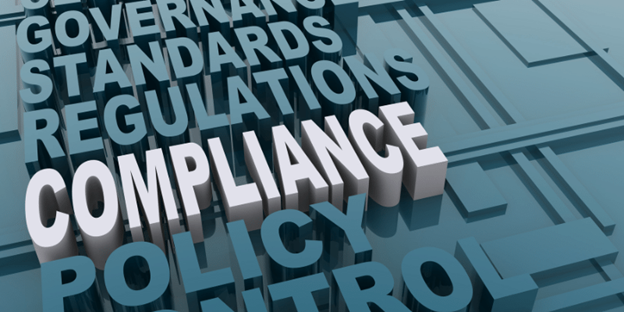
Communications from healthcare organizations must be secure and confidential. This data, no matter where it’s going or if it’s electronic or print and mail, must meet compliance mandates. Healthcare organizations and their partners have an obligation to protect this personal information, per HIPAA regulations. Beyond just HIPAA compliance, HITRUST certification is just as important. But what constitutes HITRUST compliant healthcare communications? And is your transactional print and mail provider hitting the mark?
HITRUST Compliant Healthcare Communications Goes Beyond HIPAA
HIPAA is the law that dictates security and privacy guidelines for healthcare communications; however, it doesn’t cover the infrastructure like HITRUST does. What HITRUST does is set standards on data protection that are universally applicable to providers, payers, and third-party vendors.
With the formation of HITRUST, stakeholders sought to address gaps, instituting consistency and efficiency into the compliance ecosystem. The development of a common security framework (CSF) enables mapping to various regulations and best practices that are prescriptive and scalable. HITRUST leverages both NIST and HIPAA to build out this blueprint.
Thus, when healthcare communications are HITRUST compliant, they adhere to compliance mandates and security best practices.
Why Does HITRUST Compliance Matter for Your Communications Partners?
 While most healthcare organizations worry about their own internal HITRUST certification, sometimes they overlook it in vendors. So while you may have rigid rules and best practices in place, the question becomes, do your partners?
While most healthcare organizations worry about their own internal HITRUST certification, sometimes they overlook it in vendors. So while you may have rigid rules and best practices in place, the question becomes, do your partners?
Your business partners that support your communications, such as your transactional print and mail provider, can earn HITRUST certification. It’s something you should ask questions about to understand their commitment to compliance and security.
It’s easy to think that because they follow HIPAA rules, you’re in the clear, but how can you have peace of mind about those digital files you deliver? If your provider isn’t vigilant about cybersecurity, you could expose yourself to risk.
You have that assurance by working with HITRUST certified partners. Research from HITRUST revealed that organizations that pursue it improve their information security posture, and 97% of them maintain it.
Healthcare organizations that send out patient communications build in many layers of safety nets. HITRUST is one more you’ll want to include.
How Transactional Printer and Mail Providers Ensure HITRUST Compliant Healthcare Communications
So, what makes a print and mail provider HITRUST compliant? To earn certification, an organization must demonstrate its ability to meet CSF requirements. That evolves a complex audit looking at the business’ ability to meet NIST targets. They’ll only merit certification if they:
- Develop and maintain protocols around physical access to data, which would include restricting who can be in areas that contain either the digital data or printed letters.
- Deploy tracking systems that serve to validate the integrity and accuracy of each communication.
- Document and have a plan for business continuity, incident response, and redundancy.
- Build robust cybersecurity practices that take a proactive stance on data protection, such as threat and vulnerability scanning and monitoring.
- Train and education employees on security policies.
All these points are essential to compliance regarding healthcare communications. Working with a vendor that falls short on any one of these is just too risky. If you want to feel confident, then partner with HITRUST certified companies.
A Transactional Print and Mail Partner You Can Trust
As a leading healthcare transactional print and mail provider, PCI Group received HITRUST certification in 2019 for both its locations. Our clients consider us an extension of their operations and know that we’re ensuring the safety of their patient information in every way.
Our commitment to compliance, accuracy, and data security is absolute. We want our clients to have the utmost trust in us because we know that even one error is too many. Find out more about how we support healthcare organizations and the trust we continue to build every day for our clients.


